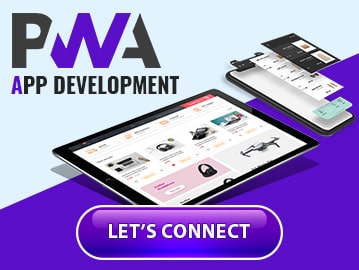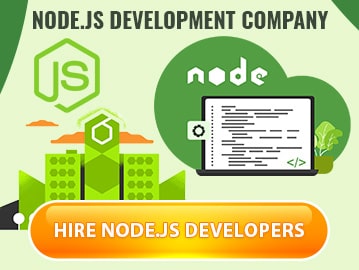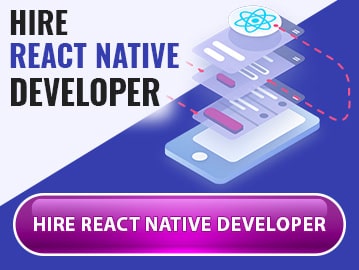Cloud Computing with PhoneGap: Perfect Hybrid Framework Solution
Written by Hemendra Singh on August 13, 2018 | Updated on: August 14, 2019

PhoneGap is one of the popular cross-platform frameworks. Nitobi had developed it at first and named it Apache Cordova. Later, in 2011, Adobe Systems acquired Nitobi and renamed it. Today, we know it by the name PhoneGap. It is an application framework that lets you build natively installed applications by using HTML and JavaScript. It is the target of every mobile app development Company to build quality apps in less time. PhoneGap is useful in this context. In this article, we will discuss cloud computing with PhoneGap and why PhoneGap is an ideal hybrid framework solution for cloud computing.
Table of Contents
A quick view on PhoneGap
- Programming languages: HTML5, CSS, JavaScript
- Supported Platforms: Android, Blackberry, Windows, iOS, and more
- License type: Free and open source
- Companies using PhoneGap: So NY, Mozilla, Intel, IBM, SworkIt, etc.
Features of PhoneGap
-
Source
The best part of the PhoneGap is it’s free of cost availability. It is an open source platform which lets you develop cross-platform apps. The PhoneGap community compiles new codes and modules. These modules are available for free as it comes with open source license.
-
Strong and Robust
PhoneGap has a robust backend system. It increases the speed of build and lessens the developers’ efforts. It also comes with a beginners guide that helps developers’ a lot.
-
Flexibility
Talking about flexibility, PhoneGap offers excellent flexibility to the developers. Developers can build the cross-platform mobile app using the PhoneGap. The best part of the PhoneGap is that you need not learn many languages. The basic knowledge of CSS3, JavaScript, and HTML is enough to get started with the PhoneGap.
Benefits of PhoneGap
1. Multiple Platform Compatibility
The PhoneGap offers a high level of compatibility with many platforms. It supports 8 various types of mobile application development platforms. Following are the names of these platforms:
- Android
- iOS
- Blackberry
- Windows
- webOS
- Symbian
- Samsung Bada
- Samsung Tizen
It means that you have to write the same code for all of these platforms. It reduces the extra effort of developers to build apps for various platforms.
2. PhoneGap offers friendly and futuristic app development
The build process via PhoneGap is friendly. It is because it supports eight distinct mobile platforms. Besides this, it also provides easier communication with backend services written in any language including PHP, ASP, JAVA, .NET, etc. using network protocols such as XMLHttpRequest, WebSockets, etc.
It is futuristic because of its open source availability. It means that the new modules will be available free of cost from time to time.
3. Cuts Time to Market
PhoneGap offers various IDEs. IDE stands for Integrated Development Environment. It means, with PhoneGap, developers are free to work with an ecosystem of different command line tools, JavaScript frameworks, and cloud services. These various IDEs let developers build the right app with the right features and functionalities. This flexibility makes the build process quick. Moreover, it also makes updates faster than native apps.
4. Cut Business Technology Investment
The code written on PhoneGap is also available on the other platforms. It means that developers can use the same codes for other platforms too. This merit of the PhoneGap reduces the developers’ efforts. They do not have to write separate codes for various platforms again and again.
Some facts about the PhoneGap
PhoneGap developers’ app
It is a paired desktop and mobile app setup. It gives developers access to built-in device APIs. The desktop version 4.0 of the PhoneGap comes with the PhoneGap template support.
It also lets you build the app with features like notifications. The best part is it does not require the command line.
Third-party templates and tools
On PhoneGap, you can use third-party tools and templates. These HTML5 templates come with shells for UI. These templates have features like buttons, menus, transitions, text boxes, and more. Besides this, the tools from the third-party like Paypal, Amazon, and Magneto give you access to many things. For example, payment, drag-and-drop design, authentication, and theme builders.
Creative SDK Plugins
PhoneGap comes with the support for creative SDK plugins. Due to this feature, developers can add native components to the apps. The developers can add elements without writing a line of Objective-C, Java, or any other native code.
A comfortable platform for beginners
Most of the beginners do not know many languages. Hence, the PhoneGap platform is best suited for them.
Compile in the cloud
PhoneGap is a cloud-based platform to build apps. It compiles the HTML, CSS, and JavaScript to the native code on the cloud. It does not need to install any SDK for each platform.
What do the developers say about PhoneGap?
-
Helpful cross-development tool for js developers
PhoneGap is an easy tool. You can configure it easily. The best part of the platform is it is also suitable for beginners. It is not needed to learn many languages to use PhoneGap.
-
It has a great library
PhoneGap comes with a good set of libraries. These libraries are also helpful to build hybrid apps. It is easier to learn. Also, PhoneGap lets you finish your projects on time.
-
PhoneGap offers a great mobile experience
The PhoneGap lets you build your app for various platforms. It provides a great user experience.
-
A useful tool for web developers
PhoneGap is a great app development tool for web developers. The best part of the platform is you can use the same code for many platforms. Hence, you need not write new codes every time. It, in turn, saves your time.
-
A useful tool for Full Stack JavaScript developers
It lets the developers centralize the mobile app codebase. So, they can quickly build their JavaScript APIs.
-
Helps to develop native apps
It lets you create the native apps from HTML5, CSS, and JavaScript or jQuery Code. If you know HTML and CSS codes, it is easier to use PhoneGap and create apps.
In a nutshell
- PhoneGap offers rapid testing and deployment of an app.
- After developing an app via PhoneGap, you can publish it on both Google Play Store and App Store.
- PhoneGap is right to build hybrid apps.
Conclusion
PhoneGap is a helpful platform for beginners. It does not need the skills to learn many languages. It supports many platforms. For example, Android, iOS, Blackberry, Windows, and more. Moreover, it offers great flexibility. App Developers can build apps using the same code. Also, it comes with a vast library. It makes the build process easy and fast. The creative SDK plugins let developers add creative components to the apps. With its multiple platform support, PhoneGap offers friendly and futuristic cross-platform app development.
My name is Hemendra Singh. I am Managing Director and co-founder of PuzzleInnovationz, a Mobile App Development Company. I am having a keen interest in the latest trends and technologies that are emerging in different domains. Being an entrepreneur in the field of IT sector, it becomes my responsibility to aid my audience with the knowledge of latest trends in the market.
![Oracle Database Advantages, Disadvantages and Features [Guide 2021]](../wp-content/uploads/2019/08/Oracle-Database-Advantages-Disadvantages-150x150.jpg)









